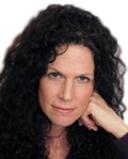Relationships
My Parent Has Become My Child
You can't actually "parent" a parent--can you?
Posted September 22, 2011
"I've become her parent," said the daughter of her mother.
"The role reversal is complete," said the son of the father.
In home health, I heard this often. It struck me hard, the sons and daughters describing themselves as the parents of their parents. "They've become my children," they said, and, somehow, though I understood the mood, the feeling, what they were trying to say, something was off. Or rather, missing. You can't actually "parent" a parent; they know this and so do we. So why do we say it?
I felt that the adult child was searching for a word—a paradigm—to describe the conundrum of watching a parent age. It didn't seem to have anything to do with love, though many loved their parents a lot, though some had contentious relationships. Regardless, labeling themselves as "parents" seemed at once compassionate and misguided, yet it was something lots of people did. Often after they said it, they would recant, intuitively knowing something about what they said was not quite right. "I shouldn't talk that way about someone who is a grown-up."
I realized they were trying to insert themselves into a role that seemed familiar. Who doesn't search for that familiar place when life is stressful and everything happening is totally unfamiliar? But there was something else; even those who were not parents did it.
"My son treats me like a child," said the mother, of the son.
"She thinks I can't think at all," said the father, about his daughter. Though he appreciated all she did for him. "I worry about her, too." That's what I'd hear from patients...the actual parents.
When my mother was declining there were times I felt that I'd wound up in a role I was not prepared for. My mind tried to find ways to organize my feelings of being overwhelmed, of being ashamed of my overwhelm, of not liking the deterioration I was witnessing. The role of parent, for all of us, is an archetype that embodies nurturance, caring, and also power. I found myself, at that time, thinking about the daughters and sons I met who told me that they had become their parents' parents. I understood now that there was something comfortable, familiar, with such a phrase, that a parent has become the child. Why? Our minds can live with this algorithm that implies nurturing, growth and development and, by extension, hope.
Still, I don't know that it's helpful in real life. It would be more realistic albeit harder to say, "I don't understand this relationship I have with my parent anymore. I don't know how to be but I want to learn."
And that, right there, can be a point of change. We only need be willing to go there.


